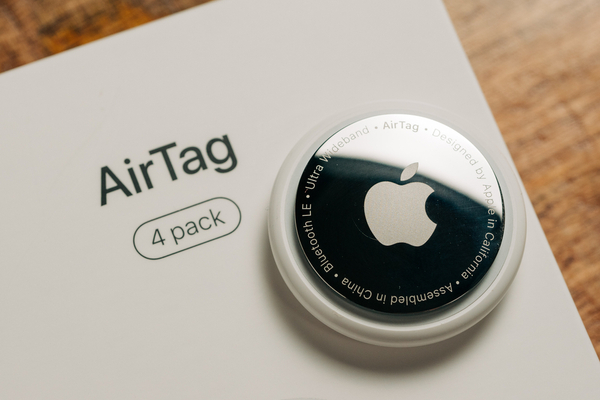Airlines have lost so much luggage of passengers this summer that travel pros are advising people against checking any bags at all, and it’s true that when you hand over your luggage to airline personnel, you run the risk of being separated from your belongings for the entirety of your trip — or longer. Many airlines face a shortage of crew and airport staff, including baggage handlers, resulting in luggage pileups at airports across the globe.
As CBS News reports, airlines mishandled nearly 220,000 pieces of luggage in April, up 135% from the same month a year ago, according to the Office of Aviation Consumer Protection. Flights at London’s Heathrow Airport were so backed up that Delta Air Lines flew 1,000 pieces of stranded luggage to the U.S. with no passengers aboard the aircraft.
That’s the bad news. The good news is that frequent fliers say they’ve come up with an effective — and high-tech — way of keeping track of their checked bags when airlines cannot: stuffing their checked luggage with Apple AirTags and other similar tracking devices.
“Bags are being lost left, right and center, and more often than not the airline hasn’t simply lost the bag, but is also unable to tell you whether the bag is at its origin, destination or somewhere else,” said aviation analyst Alex Macheras, who has been using AirTags to track his belongings since Apple released the devices in April of 2021.
“This is a small area of air travel that people can take under their control when so much of the experience, like weather and delays, cannot be controlled,” Macheras said. “Anything that can give you that sense of control helps you have a smoother experience.”
Half the battle in retrieving missing luggage is, not surprisingly, locating it. While airlines track checked bags with luggage stickers bearing barcodes, the codes must be scanned and cannot be accessed by customers. “AirTags are great because you can track them yourself. You don’t need anyone to scan a barcode,” said Clint Henderson, an editor at The Points Guy, a travel resource for consumers.
Macheras said he gifted an AirTag to a friend with whom he was traveling across Europe and whose luggage was missing when they arrived at the destination airport’s baggage claim. “The baggage desk insisted the bags were at our arrival airport, but we were demonstrating to ground handling agents that we could see the bags were stuck in Paris,” Macheras said.
“The ground handling agents were amazed that we could actually tell the airline where the bag was,” Macheras added. “We got the bag the next day and they assured us that would not have happened if an AirTag had not been in the bag.”
According to CBS News, AirTags — small, round Bluetooth devices that can be placed on a keychain as well as in a pocket, purse or suitcase — are designed to help users keep track of everything from wallets, keys and backpacks to pets and children. Apple sells a single AirTag for $29, and a pack of four tags costs $99.
Users pair the tags with a connected Apple device like an iPhone for constant tracking and the ability to locate lost items. AirTags send out Bluetooth signals that are read by nearby Apple devices, which in turn send you the location of your AirTag. Though the tags are designed to be used with Apple products, there are apps available that enable limited usage with Android devices.
Similar tracking devices are rising in popularity, too. Tile, which makes competing products (compatible with both Apple and Android devices) that can be affixed or attached to one’s belongings and paired with an app, said more people are using the tags amid the surge in mishandled luggage.
AirTags haven’t worked as well for everyone. Some users have complained that tracking is either delayed or inaccurate. However, “All in all, they’re fairly reliable,” Henderson said. “We haven’t heard any stories of people who have not been able to locate baggage. I’m leaning toward them as an investment.”
—
Photo Credit: ErickPHOTOPRO / Shutterstock.com
